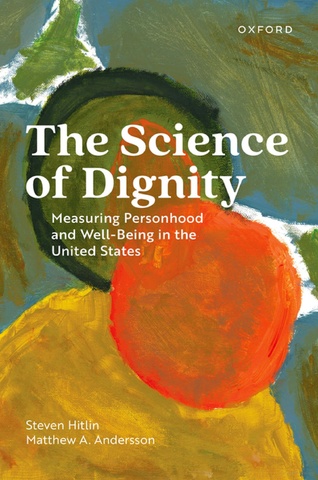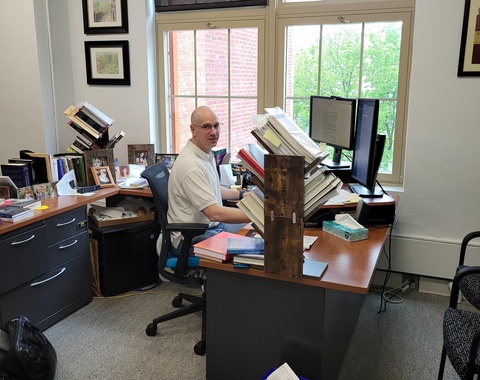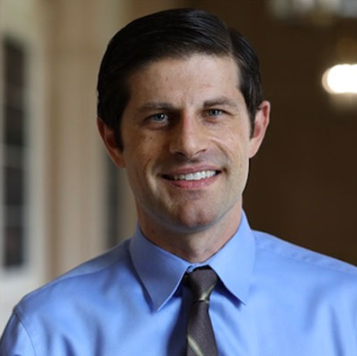
Dignity is something people may think little about until they lose it. Dignity can be lost in many ways, perhaps because our body fails us due to illness or old age, people in power humiliate us, or we lose income and can’t pay our bills. Lost dignity is keenly felt. What does dignity mean for different people? How do we reestablish dignity after losing it? When does dignity matter most? Professors Steven Hitlin and Matthew Andersson help us understand dignity and what they learned writing their new book, “The Science of Dignity: Measuring Personhood and Well-Being in the United States” from Oxford University Press.
Steve Hitlin joined our department in 2005, when it was called the Department of Sociology. (We are now the Department of Sociology and Criminology at the University of Iowa.) Steve is perhaps best known for establishing the sociology of morality as an important research area. Matt Anderson is an associate professor at Baylor University who studies health across the life course. He earned a PhD in sociology from our department in 2014 and recently gave the annual Rhys Lecture that honors graduates from our department who have gone on to notable careers.
When asked why they decided to write a book about dignity, Steve and Matt have a two-part answer. (They are professors after all.) Their first reason was practical. Theories and analyses of dignity are hard to publish in a series of academic articles. So they figured, “Why not a book?” The second part is only partly practical. They are established in their careers and had the time to devote to a project they felt passionately about, but they also found book writing to be a way to think deeply about dignity and, in the process, discover approaches that open new avenues of research.

They found that theories of dignity from various fields in the humanities and social sciences often lump together what determines dignity with what dignity is or might be. Their next step was to establish specific causes of identity and then follow them to their logical conclusion, the essence of identity itself. Dignity, it turns out, is profoundly tied to personhood. That is, how we feel about ourselves as valuable individuals worthy of respect.
Steve and Matt took the direct approach to studying dignity by asking people for their personal feelings about it, about whether their “lives lack dignity,” and whether they are “treated with dignity.” They then created a way to measure dignity using a variety of well-validated techniques from sociology, psychology, and economics. Using these tools, they show that dignity is unequal among people in society and how that matters for their health and wellbeing.

Writing the book spurred the growth of their theory of dignity. They are currently addressing the way that personal feelings about dignity cross over between work life and home life. Gender makes a difference in the way people feel about dignity at work and home. Their model proposes six key factors to explain how dignity varies and its relationship to health and wellbeing. They call it the 3R, 3M model for the factors of respect, relationships, and resources coupled with mastery, mattering, and meaning.
Professors Hitlin and Andersson see their theory becoming increasingly useful to explain issues ranging from the effects of physical disability on emotional wellbeing to developments in social media such as cancel culture.